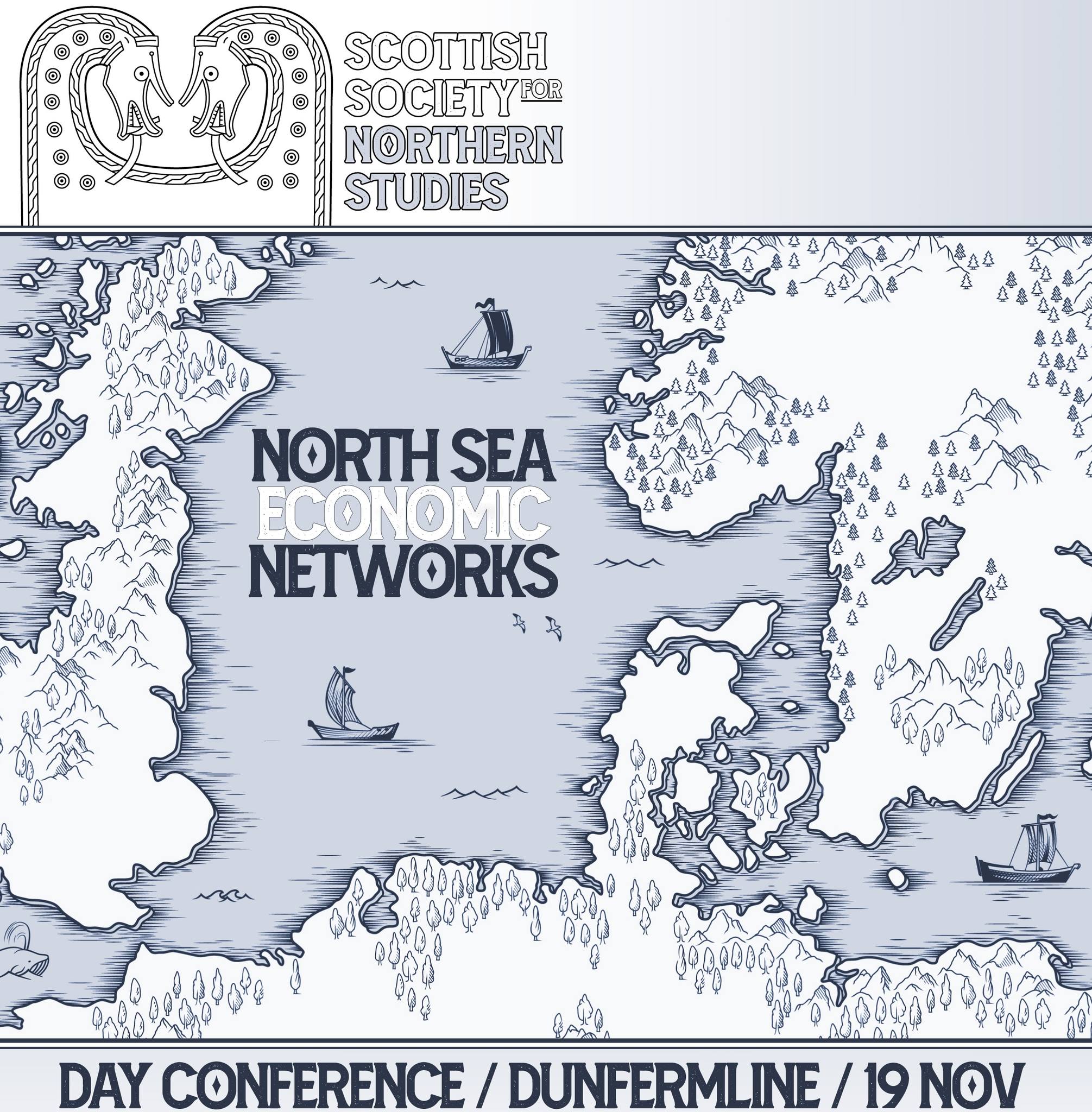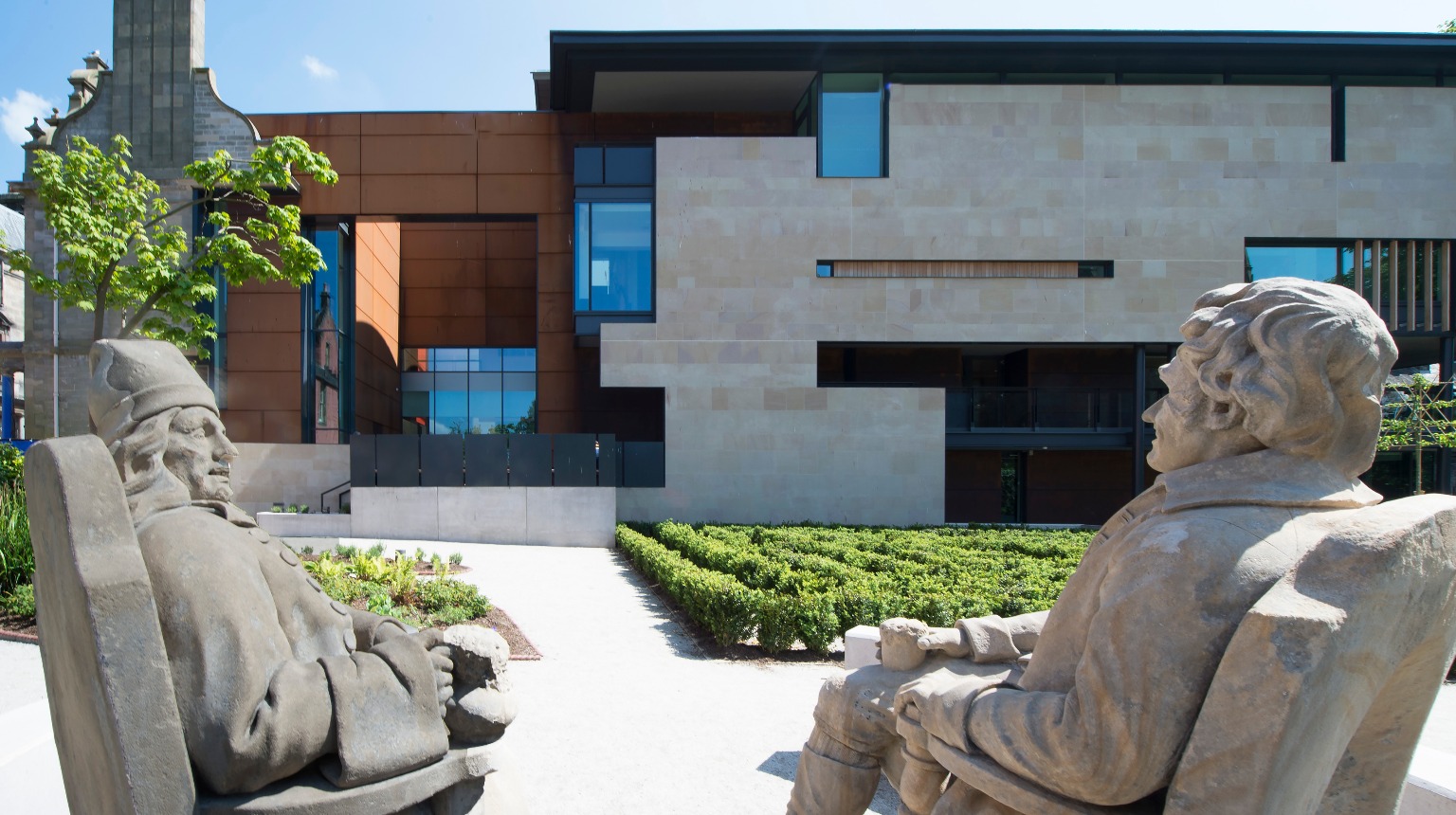
North Sea Economic Networks
[NB: online advance bookings have now closed – if you are still interested in attending, please email treasurer@ssns.org.uk for further details]
The Society is set to host its annual conference on Saturday 19 November. The event, titled ‘North Sea Economic Networks’ will take place in person in Dunfermline. The Society’s annual Hermann Pálsson Memorial Lecture and a further three speakers will explore Scotland’s ties across the North Sea. The event will also see the award of the 2022 Magnusson Prize, and the Society’s AGM, as well as a visit to Dunfermline Abbey. Tickets include lunch as well as tea/coffee during breaks.
The provisional conference programme is as follows:
- 09.10 – 09.40 Coffee/tea and registration
- 09.40 – 09.45 Welcome
-
- 09.45 – 10.30 Dr Sam Leggett (University of Edinburgh)
‘Something Fishy – Isotopic Perspectives on Migration, Food and Trade around the North Sea Zone’
- 09.45 – 10.30 Dr Sam Leggett (University of Edinburgh)
Abstract
In this paper I use multi-isotope proxies (Sr, O, C, and N – with occasional S) to chart changes in consumption, environment, and movement around the North Sea world during the first millennium AD. Of particular interest is (marine) fish consumption and its links to Scandinavian incomers into Britain. How does Scandinavian settlement impact and change diet – and does this differ throughout Britain? I identify who the “fishy” people are and chart their iso-biographies to look at where they grew up, how their diets did/did not change over life and what this means for North Sea connectivity and economies before and during the Viking Age.
-
- 10.30 – 11.15 Dr Tom Horne (Affiliate Researcher, University of Glasgow)
‘Economic networks and their monetary influence on Scandinavian Scotland’
- 10.30 – 11.15 Dr Tom Horne (Affiliate Researcher, University of Glasgow)
Abstract
Both traditional excavations and metal detector finds are expanding the dataset relating to the monetary life of Scandinavian – and Scandinavian-influenced – regions of Viking Age and Late Norse Scotland. From the Earl’s Bu in Orkney to Balmaghie in Galloway via Bornais in the Outer Hebrides, new finds and new interpretations of the old are allowing us to refine narratives that place Scotto-Scandinavians and their economic partners within wider network flows. In this talk, I will discuss these regional and long-distance links and the resultant monetary influences on Scandinavian Scotland in the period after c.850. The focus is not only on silver currencies and the remarkable longevity of bullion (metal-weight) economies in the varied regions, but also on new research from the wider Scandinavian world that is giving us insights into the adaptability of commerce and trade within societies largely or completely lacking traditional urban markets.
-
-
- 11.15 – 11.30 Break
- 11.30 –13.00 Visit to Dunfermline Abbey
- 13.00 – 13.45 Lunch
- 13.45 – 14.30 SSNS AGM (Including presentation of the 2022 Magnus Magnusson Memorial Essay Prize)
-
- 14.30 – 15.15 Dr David Ditchburn (Trinity College Dublin)
‘Towns and their Surrounds in Late Medieval Scotland’
- 14.30 – 15.15 Dr David Ditchburn (Trinity College Dublin)
Abstract
This paper will examine the relationship between Scottish towns and their hinterlands, and the boundaries between them. The distinction between town and country was in some ways quite sharply drawn – for example with regard to migration and law. But in other ways the distinction was much more blurred. Scottish towns were on the whole not walled, so the physical, and perhaps sonic, distinctions between town and country, though present, were not as marked in Scotland as in some other countries. Parish boundaries in Scotland were rarely coterminous with burgh boundaries. The trading monopolies which many towns exercised over often extensive hinterlands (for example in the case of Aberdeen and Perth) further linked town and countryside. It will be argued that these economic zones which towns and their hinterlands constituted extended overseas too, defined by legislation which directed trade to particular destinations.
-
- 15.15 – 15.30 Break
-
- 15.30 – 16.30 The Hermann Pálsson Memorial Lecture
Prof. Donna Heddle (University of the Highlands and Islands)
‘”Anither scone, mynheer?”: The Linguistic Legacy in Scots of the North Sea Economic Networks’
- 15.30 – 16.30 The Hermann Pálsson Memorial Lecture
Abstract
The Scots language has been enriched by contact with many cultures over the years – we can see the influence of Latin on our legal terminology, French on our culinary offerings, and Gaelic on our toponomy, for example – but perhaps the most pervasive has been the influence of our trading across the North Sea. This paper seeks to explore the extent of this influence throughout the ages and on the language we speak today. There will be some surprises on the way!
-
Speaker details:
- Dr David Ditchburn (Trinity College Dublin)
David Ditchburn is Associate Professor of Medieval History at Trinity College Dublin. - Prof. Donna Heddle (University of the Highlands and Islands)
Donna is Director of the University of the Highlands and Islands Institute for Northern Studies, which is based in Kirkwall, Lerwick, and Perth. She has won awards for course development and design. Her PhD was undertaken at the University of Edinburgh and her research interests are Scottish cultural history, Scottish Renaissance language and literature, and cultural tourism. She was awarded a Personal Chair by UHI in June 2013 and served as UHI’s acting Vice Principal (Research and Impact) in 2021-22. She is currently a Trustee of the Society of Antiquaries of Scotland and has previously sat on the board of Museums Galleries Scotland and Hi-Arts. - Dr Tom Horne (Affiliate Researcher, University of Glasgow)
Tom studied Ancient and Modern History at the University of Oxford and has been involved in archaeological excavations since 2000. He undertook a master’s in Medieval Archaeology and a PhD in Viking Age trade at the University of Glasgow and has dug at Viking sites from Shetland to Ukraine, including the Great Army sites at Repton and Foremark in Derbyshire and the possible Coquet Valley winter-camp. Tom has written extensively about Scandinavian economics, most recently being published in the Routledge Archaeologies of the Viking World series with his book, A Viking Market Kingdom in Ireland and Britain: Trade Networks and the Importation of a Southern Scandinavian Silver Bullion Economy. - Dr Sam Leggett (University of Edinburgh)
Sam is a Leverhulme Early Career Research Fellow and Computational Archaeology lecturer at the University of Edinburgh. Her current Leverhulme project “ArchaeoFINS: medieval archaeology of fishing around the Irish and North Seas” investigates the how and why of the “Fish Event Horizon”, with a particular focus on Scotland. Her previous work has focussed on female mobility in the seventh century England, and large-scale socio-environmental changes and migration in first millennium AD western Europe using isotope analysis.


